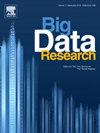Time-synchronized sentiment labeling via autonomous online comments data mining: A multimodal information fusion on large-scale multimedia data
IF 4.2
3区 计算机科学
Q2 COMPUTER SCIENCE, ARTIFICIAL INTELLIGENCE
引用次数: 0
Abstract
While temporal sentiment labels prove invaluable for video tagging, segmentation, and labeling tasks in multimedia studies, large-scale manual annotation remains cost and time-prohibitive. Emerging Online Time-Sync Comment (TSC) datasets offer promising alternatives for generating sentiment maps. However, limitations in existing TSC scope and a lack of resource-constrained data creation guidelines hinder broader use. This study addresses these challenges by proposing a novel system for automated TSC generation utilizing recent YouTube comments as a readily accessible source of time-synchronized data. The efficacy of our multi-platform data mining system is evaluated through extensive long-term trials, leading to the development and analysis of two large-scale TSC datasets. Benchmarking against original temporal Automatic Speech Recognition (ASR) sentiment annotations validates the accuracy of our generated data. This work establishes a promising method for automatic TSC generation, laying the groundwork for further advancements in multimedia research and paving the way for novel sentiment analysis applications.
基于自主在线评论数据挖掘的时间同步情感标记:大规模多媒体数据的多模态信息融合
虽然时间情感标签在多媒体研究中的视频标记、分割和标记任务中被证明是无价的,但大规模的人工注释仍然是成本和时间上的限制。新兴的在线时间同步评论(TSC)数据集为生成情感地图提供了有希望的替代方案。然而,现有TSC范围的限制和缺乏资源有限的数据创建指南阻碍了更广泛的使用。本研究通过提出一种新的系统来解决这些挑战,该系统利用最近的YouTube评论作为易于访问的时间同步数据来源,自动生成TSC。我们的多平台数据挖掘系统的有效性通过广泛的长期试验进行评估,从而开发和分析了两个大型TSC数据集。对原始时间自动语音识别(ASR)情感注释进行基准测试验证了我们生成数据的准确性。这项工作建立了一个有前途的自动生成TSC的方法,为多媒体研究的进一步发展奠定了基础,并为新的情感分析应用铺平了道路。
本文章由计算机程序翻译,如有差异,请以英文原文为准。
求助全文
约1分钟内获得全文
求助全文
来源期刊

Big Data Research
Computer Science-Computer Science Applications
CiteScore
8.40
自引率
3.00%
发文量
0
期刊介绍:
The journal aims to promote and communicate advances in big data research by providing a fast and high quality forum for researchers, practitioners and policy makers from the very many different communities working on, and with, this topic.
The journal will accept papers on foundational aspects in dealing with big data, as well as papers on specific Platforms and Technologies used to deal with big data. To promote Data Science and interdisciplinary collaboration between fields, and to showcase the benefits of data driven research, papers demonstrating applications of big data in domains as diverse as Geoscience, Social Web, Finance, e-Commerce, Health Care, Environment and Climate, Physics and Astronomy, Chemistry, life sciences and drug discovery, digital libraries and scientific publications, security and government will also be considered. Occasionally the journal may publish whitepapers on policies, standards and best practices.
 求助内容:
求助内容: 应助结果提醒方式:
应助结果提醒方式:


